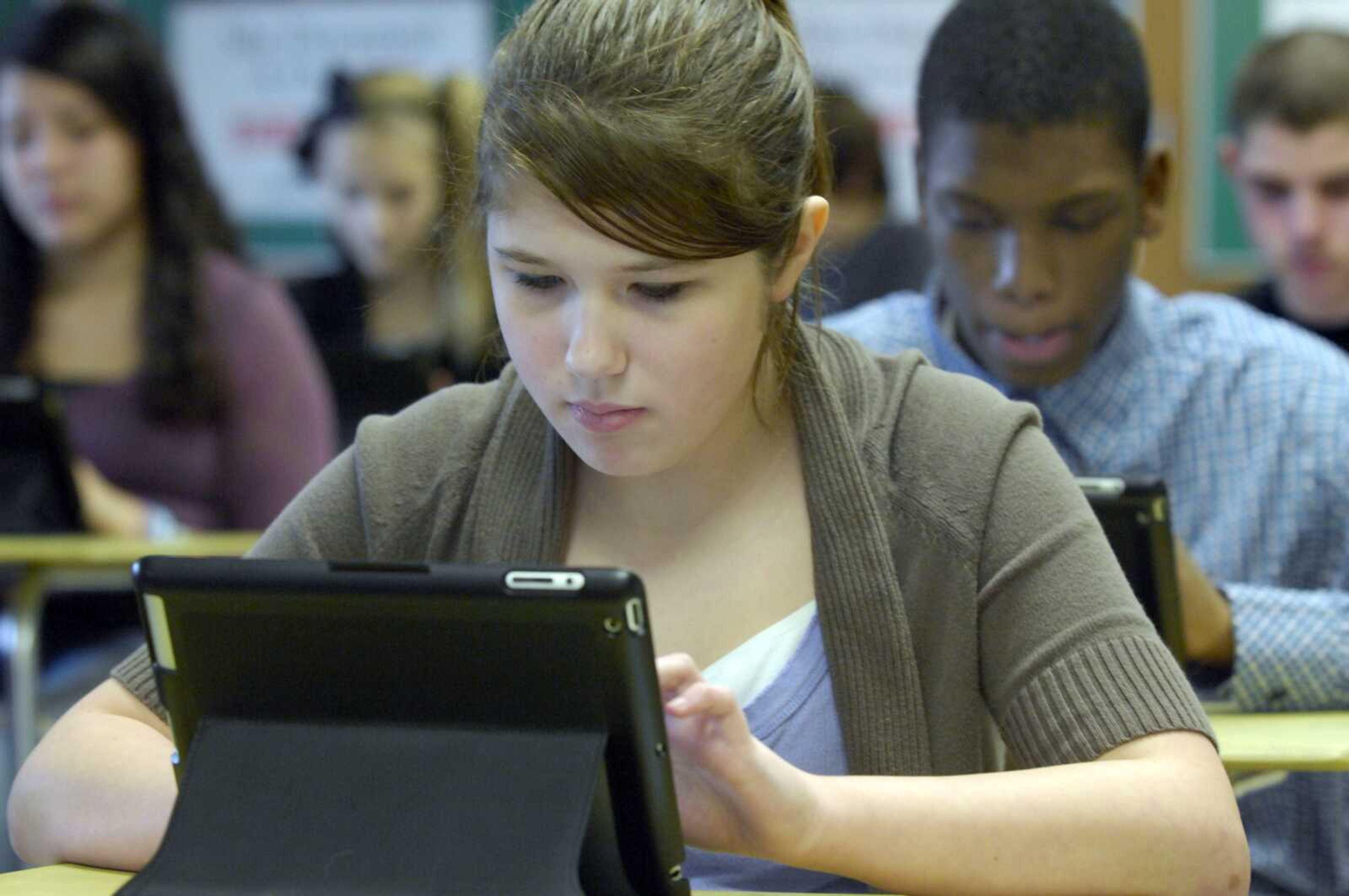Schools urged to embrace digital textbooks
WASHINGTON -- Hardbound textbooks could go the way of slide rules and typewriters in schools. Education Secretary Arne Duncan and Federal Communications Commission chairman Julius Genachowski on Wednesday challenged schools and companies to get digital textbooks in students' hands within five years. The Obama administration's push comes two weeks after Apple Inc. announced it would start to sell electronic versions of a few standard high-school books for use on its iPad tablet...
WASHINGTON -- Hardbound textbooks could go the way of slide rules and typewriters in schools.
Education Secretary Arne Duncan and Federal Communications Commission chairman Julius Genachowski on Wednesday challenged schools and companies to get digital textbooks in students' hands within five years. The Obama administration's push comes two weeks after Apple Inc. announced it would start to sell electronic versions of a few standard high-school books for use on its iPad tablet.
Digital books are viewed as a way to provide interactive learning, potentially save money and get updated material faster to students.
Digital learning environments have been embraced in Florida, Idaho, Utah and California, as well as in individual schools and districts such as Joplin, Mo., where laptops replaced textbooks destroyed in a tornado. But many schools lack the broadband capacity or the computers or tablets to adopt the technology, and finding the money to go completely digital is difficult for many schools in tough economic times. And, in some places, adopting new textbooks is an arduous process.
At a time when technology has transformed how people interact and even led to social uprisings in the Middle East, education has too often lagged, Duncan said.
"Do we want kids walking around with 50-pound backpacks and every book in those backpacks costing 50, 60, 70 dollars and many of them being out of date? Or, do we want students walking around with a mobile device that has much more content than was even imaginable a couple years ago and can be constantly updated? I think it's a very simple choice," Duncan said.
Tied to Wednesday's announcement at a digital town hall was the government's release of a 67-page "playbook" to schools that promotes the use of digital textbooks and offers guidance. The administration hopes that dollars spent on traditional textbooks can instead go toward making digital learning more feasible.
Going digital improves the learning process, and it's being rolled out at a faster pace in other countries, such as South Korea, Genachowski said in an interview. Genachowski said he's hopeful it can be cost effective in the long run, especially as the price of digital tablets drops.
"When a student reads a textbook and gets to something they don't know, they are stuck," Genachowski said. "Working with the same material on a digital textbook, when they get to something they don't know, the device can let them explore: It can show them what a word means, how to solve a math problem that they couldn't figure out how to solve."
Students can use the textbooks for video explanations to help with homework, they can interact with molecules, and they can manipulate a digital globe to see stories and data about countries, said Karen Cator, director of the Education Department's office of education technology.
"We're not talking about the print-based textbook now being digital. We're talking about a much more robust and interactive and engaging environment to support learning," Cator said.
About $8 billion is spent annually in the U.S. on textbooks for children in kindergarten through 12th grade, said Jay Diskey, the executive director of the school division of the Association of American Publishers. Diskey said textbook companies have been working on the technology for the past five to eight years to transform the industry, but that in many cases, schools simply aren't ready.
"It's not only the future, it's the now. The industry has embraced this, but the difficulty does lie in the fact that schools are not yet fully equipped with the hardware. We hope that they get there soon," Diskey said.
After the tornado last May destroyed several schools in Joplin, the decision was made essentially to go textbook free at three sites hosting high school children from Joplin High School and the Franklin Technology Center. The United Arab Emirates donated money to buy each student a laptop.
The response from students has been mixed, said Angie Besendorfer, the district's assistant superintendent. She said the transition has proved difficult for some children accustomed to a standard routine of answering questions at the end of a chapter, but administrators are pleased with the online learning and hope 8th-graders also will go essentially textbook free.
"It's a little bit more work on the side of the students in that they are having to think and problem solve and do things differently, and some of our kids are not so fond of that, whereas other kids like it a lot," Besendorfer said.
----------
Follow Kimberly Hefling on Twitter at http://twitter.com/khefling
Connect with the Southeast Missourian Newsroom:
For corrections to this story or other insights for the editor, click here. To submit a letter to the editor, click here. To learn about the Southeast Missourian’s AI Policy, click here.










